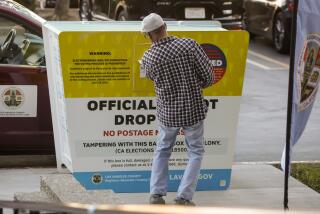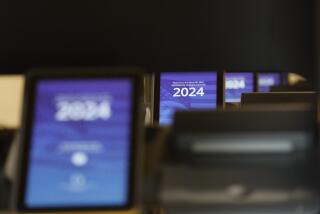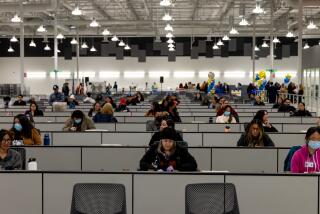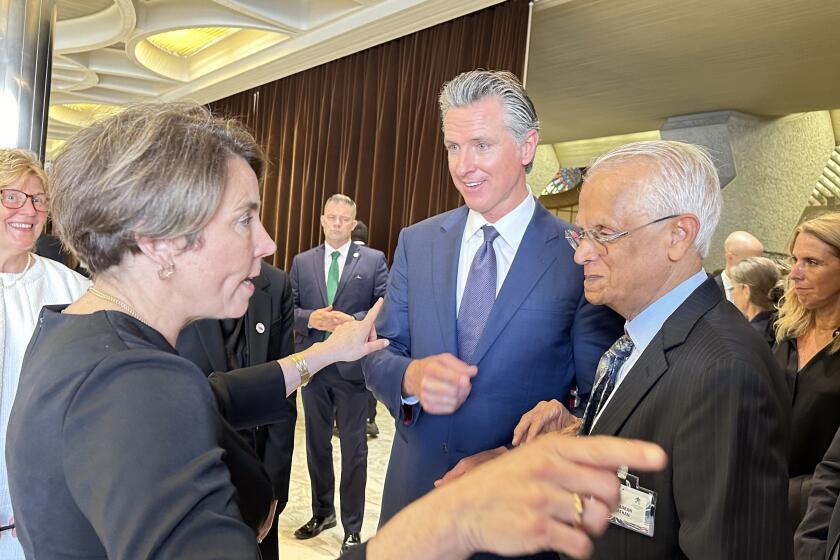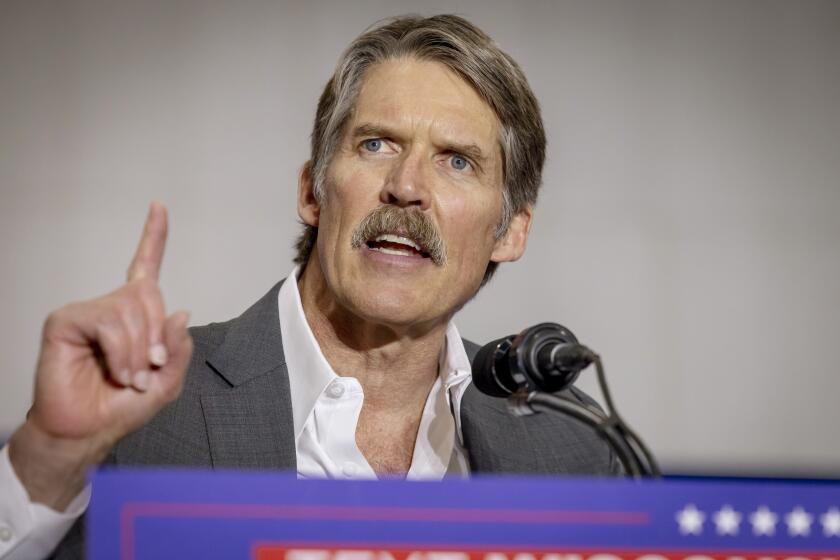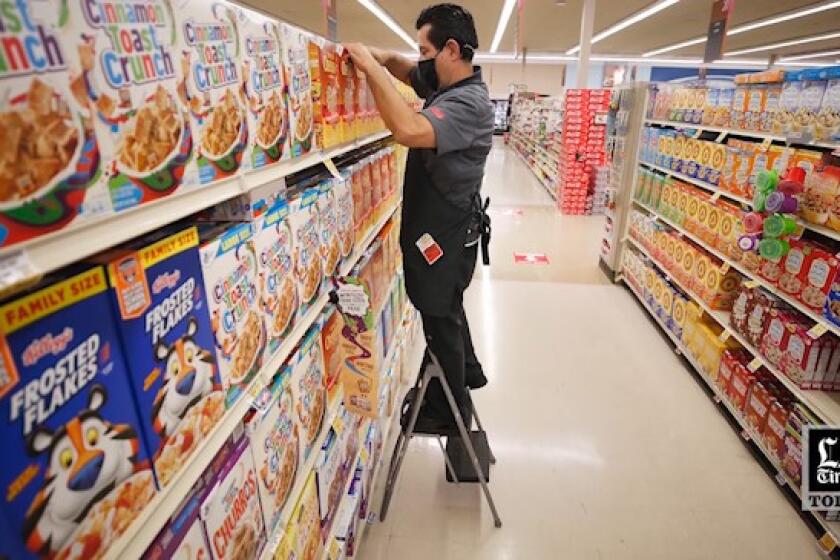If They’re Registered, Most Will Vote : ‘Motor voter’: GOP partisanship is stalling a plan that could bring millions more to the polls.
A bill that could dramatically alter California and national politics is stuck in the state Legislature, held hostage by partisan rivalry.
The federal “motor-voter” bill, signed by President Clinton last May, requires all states to streamline their voter registration laws. It requires states to allow voters to register when they apply for or renew their driver’s licenses, to enlist voters at social service, military recruitment and other public agencies and to permit voters to register by mail. (California already does the latter). It also orders states to implement these provisions by Jan. 1.
Several states already use their motor-vehicle agencies to register voters and are now moving quickly to implement the other aspects of the federal law.
Acting Secretary of State Tony Miller wants to implement the law, but cannot get the cooperation of Gov. Pete Wilson, who has authority over the key state agencies. Last year, Assemblyman Rusty Areias (D-San Jose) filed an implementation bill, but it has been stalled by Republican opposition. Wilson and GOP legislators fear that the new law will increase registration primarily among groups who tend to vote for Democrats.
Even if implemented by the federal deadline, the law will have no effect on this year’s state elections, but it could have a significant impact on future races, including the 1996 presidential contest. The United States has the lowest voter turnout of any Western democratic nation. Typically, about half of eligible U.S. voters go to the polls in national elections, compared with 80% and 90% in other democracies.
Most experts believe that our nation’s crazy-quilt voter registration laws, rather than apathy or satisfaction with the status quo, account for these low figures. For example, in our highly mobile society, people are dropped from the voting rolls when they move, and many don’t get around to re-enlisting before the next election. In contrast, before each election in Canada, a complete national registration is carried out in a matter of weeks by Elections Canada, a federal agency.
Of the Americans who are registered, about 85% actually cast ballots. Currently, 68% of California’s 21.4 million eligible voters are registered. About 90% of eligible voters have drivers licenses and another 4% have Department of Motor Vehicles photo-identification cards. Thus, the motor-voter law could potentially increase voter registration to 94%, adding 5 1/2 million new registrants. Additional citizens would be registered at social welfare and unemployment offices, libraries, schools and other agencies. Even modest increases in overall registration could have an important political impact, particularly in close races.
Who are the likely new voters? Most political experts believe that poor, minority and young people are disproportionately among the unenlisted. Although the motor-voter law would undoubtedly increase overall registration, particularly among these groups, it is not preordained how or even if they will vote. That depends on whether either party addresses their concerns and spends resources to get out the vote.
Wilson has threatened to veto any bill that includes agency-based registration, even though the federal law requires it. He also opposes the requirement that the DMV use a single form for both obtaining a driver’s license and registering to vote--an approach that would ease registration. The Republicans also want to purge anyone who hasn’t voted in the previous election from voting lists, a measure prohibited by the federal statute.
Republican legislators and their aides resort to the smoke screen that making it easier to register would promote election “fraud,” encouraging ineligible people (including undocumented immigrants) to vote. In fact, experience in other states, as well as common sense, suggests that the motor-voter approach reduces fraud. The DMV and social welfare agencies have a much higher standard of screening applicants than our system of registering voters at sidewalk tables, by mail or at city halls.
Even if the Legislature passed the Areias bill (now stuck in the Assembly Elections Committee), and Wilson signed it this week, it would be almost impossible to have the new system fully operational by the Jan. 1 deadline. If the governor and Legislature fail to act soon, the issue will end up in federal court, which would likely require compliance with the federal law.
The current gridlock has been abetted by the absence of public awareness. Neither California’s media nor any of the current candidates for statewide office have paid much attention to this conflict.
Surprisingly, citizen groups that spent years pushing the federal motor-voter bill through a reluctant Congress--Common Cause, League of Women Voters, AARP, unions, civil-rights and community groups--have not actively mobilized their members to pass an implementation bill.
Some may view this stalemate as simply a debate over technical details but the outcome will have broad consequences. It involves a struggle over the future of California politics and the very essence of citizenship--the right to vote.
More to Read
Get the L.A. Times Politics newsletter
Deeply reported insights into legislation, politics and policy from Sacramento, Washington and beyond. In your inbox three times per week.
You may occasionally receive promotional content from the Los Angeles Times.
